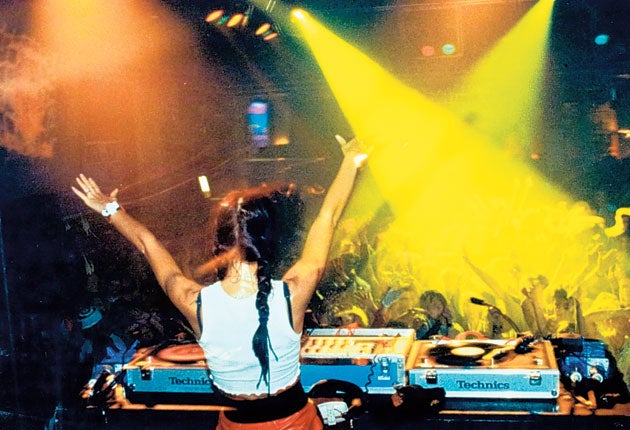Just weeks after Sony quietly pressed stop on the Walkman, its Japanese rival Panasonic has announced the end of another chapter of music history. It will no longer produce its Technics line of analogue turntables, including the pioneering 1200 series, originally a humble record player, that almost by accident sparked the birth of a musical and cultural movement.
When they were first brought to the consumer market in 1972, the Technics SL 1200 quickly became the standard among radio and club DJs as, when combined in a pair, the turntables made it possible to synchronise different recordings, giving rise to the disco (and house and techno) style of continuous beat matching. Since then, rappers have continuously name checked the "1200s", "Tee 12s", "Tec 12s", "wheels of steel" and "the one and twos" that helped to found their art.
According to the 2002 movie Scratch, made at the height of the DJ boom, for several years at the turn of the 20th century, turntables were outselling guitars across the UK. But though they have sustained the romance of vinyl far longer than was reasonable to expect, they are nonetheless an analogue device in a digital world. According to the manufacturers: "Panasonic decided to end production mainly due to a decline in demand for these analogue products and also the growing difficulty of procuring key analogue components necessary to sustain production. Our product range has to reflect the transformation of the entire audio market from analogue to digital."
While it will likely be some time before the turntables disappear altogether, the final suspension of their production has prompted no lack of nostalgia from their proponents – even those who have moved on themselves.
"They were never the best sounding but they're the most durable," said Rory Phillips, a leading figure on the London and European superclub scene. "They can stand the rigours of being in a smoky sweaty nightclub night after night. They weren't built for scratching, but they gave birth to scratching. You just couldn't do it on other turntables; I ruined quite a few home hi-fis trying it."
"It's very sad," said Dextrous, 28, a DJ from Manchester who acquired his set of SL 1200 as a 15-year-old. "I still think they're unbeatable. But in recent years we've seen the march of the digital DJ. The trouble with turntables is it leaves you locked into buying records. You can't play songs before they've been released, which everyone wants to now, and lots of DJs want to promote their own music, and not many of them have got it on vinyl. I've still got my Technics at home, but next to them I've got MP3 turntables."
Thirty-eight years after its initial release, the SL 1200 had barely changed and had seen off competitors' attempts to ape it. The latest iPod, a similarly revolutionary product, is scarcely comparable to its first chunky incarnation in 2001. But where the iPod all but obliterated its rivals, this announcement perhaps doesn't mean the end of the SL-1200. Some products that have purportedly replaced the analogue turntable still need the turntables in order to function, including the Serato Scratch program for DJs.
"It's sad news," said Mr Phillips. "But they're durable. There's still hundreds of thousands in circulation, and I'm sure they'll be around for years."

Join our commenting forum
Join thought-provoking conversations, follow other Independent readers and see their replies
Comments